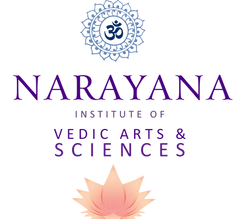The Science Behind Traditional Head Massages
- Monica B Groover

- Jun 17, 2025
- 4 min read
Updated: Jul 12, 2025
I have provided numerous head massages. Most Westerners enjoy them, although some dislike how it disrupts their hair. In my view, Ayurvedic head massages, which utilize various oils, are the best. Head massages have been practiced for centuries across various cultures. They are not only a relaxing indulgence but also come with numerous health benefits. In this blog post, we will delve into the science behind traditional head massages, their history, the physiological effects on the body, and how you can incorporate them into your wellness routine.
What is a Head Massage?
A head massage is a therapeutic technique that involves the manipulation of the scalp, neck, and sometimes the shoulders using various strokes and pressure points. It can be performed with or without oils and often lasts from 10 minutes to an hour. The experience can be deeply relaxing, alleviating stress and tension while promoting blood circulation and mental clarity.

Benefits of Head Massages
The benefits of head massages are vast. Scientifically, they can reduce stress, promote relaxation, and enhance overall well-being. Here are some of the key benefits:
Reduced Stress and Anxiety
Head massages stimulate the release of endorphins, which are chemicals in the brain that promote a feeling of happiness. When performed regularly, they can significantly reduce symptoms of anxiety and tension.
Improved Blood Circulation
The gentle kneading and rubbing of the scalp can help increase blood flow to the area. This not only nourishes the hair follicles but also aids in promoting healthy hair growth. Healthy circulation brings more oxygen and nutrients to the brain, enhancing cognitive functions.
Relief from Headaches
Many people turn to head massages for relief from tension headaches and migraines. The pressure applied to specific points on the head and neck can help alleviate pain and discomfort.
Enhanced Hair Health
Regular head massages can strengthen hair roots and improve texture. Furthermore, the use of specific oils during the massage can impart additional benefits, such as moisturizing the scalp and preventing dandruff.

The Science of Touch in Head Massages
The science behind head massages is rooted in the biology of touch. The skin on our scalp is rich in nerve endings, making it sensitive to pressure and movement. When you receive a head massage, your skin absorbs the tactile stimuli, which are then transmitted to the brain, triggering the relaxation response.
Studies have shown that touch can significantly decrease levels of cortisol, the stress hormone. According to a study published in the Journal of Alternative and Complementary Medicine, participants who received head massages exhibited a marked decrease in cortisol levels post-massage. This demonstrates that head massages can play a significant role in stress relief and relaxation.
Traditional Techniques Around the World
Head massage techniques vary widely from culture to culture. Here are a few of the most well-known practices:
Indian Champi
Originating in India, Champi involves the application of warm oil to the scalp and thorough massaging of the head, neck, and shoulders. This technique not only promotes relaxation but is also considered beneficial for hair health.
Thai Head Massage
This technique combines elements of Thai massage with acupressure. It focuses on the head, neck, and shoulders to relieve tension and restore balance to the body's energy.
Japanese Shiatsu
Shiatsu head massage involves applying finger pressure on various points of the scalp. This method is believed to harmonize the flow of energy in the body while promoting relaxation.
Each of these techniques provides a unique experience while addressing similar issues related to stress, tension, and overall wellness.

Incorporating Head Massages into Your Routine
Head massages can easily be integrated into your daily or weekly routine. Here are some tips on how to do it effectively:
Schedule Regular Sessions
Make self-care a priority by scheduling regular head massage sessions. Whether it’s at a spa or a simple 10-minute session at home, consistency is key for maximizing benefits.
Use Oils Wisely
Consider using natural oils like coconut, almond, or lavender oil during your massage. These oils can nourish your scalp while enhancing relaxation. The ayurvedic head massage benefits can be particularly profound when using well-chosen oils.
Practice Mindfulness
Create a serene environment by eliminating distractions. Focus on your breath and the sensations you experience during the massage. This can magnify the benefits, helping you to unwind further.
Learn Basic Techniques
There are plenty of resources and tutorials available on various head massage techniques. Learning these can empower you to perform effective massages for yourself or loved ones.
Combine with Other Wellness Practices
Consider pairing head massages with other practices like meditation, yoga, or deep breathing exercises for a holistic approach to stress management.
Real-Life Impact of Head Massages
Numerous testimonials highlight the life-changing effects of incorporating head massages into one’s routine. Many individuals report not just physical relief from headaches and tension but also psychological benefits such as heightened mood and better sleep.
For instance, one study involving participants who practiced head massages alongside yoga showed a considerable reduction in anxiety levels and an increase in overall well-being. This illustrates how regular head massages complement other health-boosting practices.
Ultimately, the realization that such a simple technique can yield profound physical and mental improvements is empowering.
Final Thoughts
Head massages are a timeless practice with roots in various cultures. Their ability to alleviate stress, improve hair health, and promote relaxation makes them a valuable addition to wellness routines. With a better understanding of the science behind traditional head massages and their effects on the body, you can transform this age-old practice into a powerful tool for both mental clarity and physical well-being.
Consider incorporating head massages into your self-care routine to unlock their numerous benefits. With careful attention to technique and consistency, you can harness the transformative power of this simple yet effective practice.


















Comments